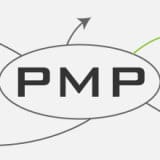How to Correctly Answer PMI-ACP Exam Questions

I passed the PMI-ACP® exam with “proficient” in all the domains tested. The following are the tips generated from my PMI-ACP® experience. It is hoped that these PMI-ACP® tips would help PMI-ACP® candidates to get several more questions right. Wish you PMI-ACP® success!
Article Highlights
- 1 Tips 1 – Look out for “Tricky” Words
- 2 Tips 2 – Distinguish between the meaning for the following Words
- 3 Tips 3 – The general Agile principles and practices are correct
- 4 Tips 4 – Self organization is highly valued in Agile
- 5 Tips 5 – Be ware of “Escalation” and even “Discussion with Management”
- 6 Tips 6 – Scrum, XP and Lean
- 7 Tips 7 – Colocation and Osmotic Communication
- 8 Tips 8 – Beware PMP
- 9 Tips 9 – Understand the role of a project leader (e.g. Scrum Master, XP Coach)
- 10 Tips 10 – Don’t spend too much time on “Alien” questions
Tips 1 – Look out for “Tricky” Words
Since the PMI-ACP® Exam is a test of your Agile knowledge and concept, you must look out for the following words that are against the Agile principles. Though answers containing these words are not automatically made false, you should raise a red flag and re-read the questions and answers if the following tricky words appear:
- assigned (tasks / user stories) – Agile teams works with self organization, not work assignment
- escalate (the situation) – the very nature of the Agile team formation (with Product Owner / Customer co-located) makes escalation of issues much less than traditional project management
- plan – Agile projects seldom create lots of project management plan upfront
- documentation – though Agile highly favors working software, it is perfectly okay to create documentations that are barely sufficient, don’t rule out creating documentation as a possible task
- direct, instruct, request (by the project leader) – Agile teams work by self organization, the leader is often a servant leader and would seldom assume a “command and control” position
Tips 2 – Distinguish between the meaning for the following Words
Some concepts for the PMI-ACP® Agile Exam are often confused as they are quite similar, yet failing to distinguish them will result in an answer wrong:
- user story vs task – user stories will add value (bearing story points) but that is not necessarily true for tasks
- affinity estimating vs relative sizing – both have similar meaning, relative sizing is estimating the efforts in relation to other user stories while affinity estimating is the use of common sizing units to compare task sizes (like S,M,L,XL or coffee cup sizes), affinity estimating is usually used for release planning (early stage) while relative sizing is used in iteration planning
- sprint review vs sprint retrospective – sprint review is for demo and validation purposes, often involving customer and other stakeholders; sprint retrospective is for the team members only with the purpose of finding areas for improvements (including people, process and product)
Tips 3 – The general Agile principles and practices are correct
- Since Agile allows process tailoring, many of the Agile processes can be tailored to suit the particular needs of a project environment. For many PMI-ACP® questions, it may seem that many answer choices of a question are feasible. Yet, one should consider the answer choices according the general Agile principles and practices (i.e. the plain-vanilla Agile processes) and select the answer that is the general recommendation / practice.
- PMI-ACP® candidates should study the plain-vanilla Agile processes and practices and cannot depend only on their actual working experience to answer the exam questions.
- It is advisable not to choose an answer based on your own working experience as most Agile teams will tailor the processes to suit their own needs.
- It is highly advised to learn the Agile Manifesto by heart as questions would ask you to pick the correct ones.
Tips 4 – Self organization is highly valued in Agile
- Team members are most important assets for the organization. The success or failure of the project largely depends on the morale and skills of the team.
- Self organization and team empowerment are a highly favored concept for Agile teams. Whenever you encounter this term in an answer choice, you may like to seriously consider the choice as the correct answer.
Tips 5 – Be ware of “Escalation” and even “Discussion with Management”
- Following on the tips about “self organization”, since Agile highly favors resolving problems and making decisions by the team, ‘escalation’ is considered not recommended except in extreme cases.
- When the following phrases appear in an answer choice, the choice is not likely the correct answer:
- discuss with senior management
- recommend to the senior management
- ask management to participate
- to be approved by the management
Tips 6 – Scrum, XP and Lean
- Though there are many different Agile methodologies in practice nowadays, the PMI-ACP® exam mainly focuses on the following three methodologies:
- Scrum – roles, principles, daily standup, sprint review, sprint retrospective
- XP – roles, principles, practices (e.g. refactoring, pair programming, customer review)
- Lean – principles (e.g. eliminating wastes), practices
Tips 7 – Colocation and Osmotic Communication
- Team members working on the same project are highly recommended to be co-located within the same room to reap the benefits of osmotic communication (i.e. picking up information through over-hearing discussions of other members without actively participating)
- This is a frequently asked topic on the PMI-ACP® exam accounting for several questions. Whenever you see the words “osmotic”, “communication” and “colocation”, the answer choice is likely to be correct.
Tips 8 – Beware PMP
- Since the PMI-ACP® exam is administrated by the PMI which carries also the popular PMP certification, many PMP would also apply to take the PMI-ACP® exam. The PMI-ACP® would try to test candidates on whether they understand the differences between traditional and Agile project management.
- When you read the following words / phrases, pay special attention as the answer choices may not be correct:
- change management
- create a plan / amend a plan
- assign tasks
- scope creep
- escalation
- report and documentation
- baseline
- Monte Carlo, regression analysis, etc.
Tips 9 – Understand the role of a project leader (e.g. Scrum Master, XP Coach)
- A project leader should function more like a facilitator and work to ensure the Agile principles and practices are followed.
- Whenever the project leader find some team members disrupting, it is best advised to wait for the team to collaborate to resolve the issue within the team first rather than talking directly to those problematic team members.
- Often, the questions would present a “problem” situation and ask you what is the best next course of action to carry out by the project leader. The answer usually favors resolving within the team with a participatory decision model.
Tips 10 – Don’t spend too much time on “Alien” questions
- Among the 120 questions on the PMI-ACP® exam, 20 of which are termed as “pre-test” questions included for experimental purposes only. The pre-test questions have not yet passed the quality validation required and therefore these questions would sound strange or even difficult to you.
- Whenever you encounter a question that is “alien” (i.e. which you have not even remember seeing on any of your PMI-ACP® exam prep materials) to you, don’t spend too much time on it. There is a high chance that the question is one of the “pre-test” questions which will not affect your final score.
Further Reading: How to be well prepared for the PMI-ACP® Exam
Most Popular PMI-ACP Certification Articles
- Top 10 Tips to Prepare for the exam (I got all Proficient in my exam)
- How to Get 21 Contact Hours?
- Over 600+ FREE Quality Mock Exam / Practice Questions





 Hi, my name is Edward Chung, PMP, PMI-ACP®, ITIL® Foundation. Like most of us, I am a working professional pursuing career advancements through Certifications. As I am having a full-time job and a family with 3 kids, I need to pursue professional certifications in the most effective way (i.e. with the least amount of time). I share my exam tips here in the hope of helping fellow Certification aspirants!
Hi, my name is Edward Chung, PMP, PMI-ACP®, ITIL® Foundation. Like most of us, I am a working professional pursuing career advancements through Certifications. As I am having a full-time job and a family with 3 kids, I need to pursue professional certifications in the most effective way (i.e. with the least amount of time). I share my exam tips here in the hope of helping fellow Certification aspirants!






Your site helped with valuable tips and references. Thank you. I managed to pass PMI-ACP and i have detailed the resources i used and my experiences here in my site – https://www.gurumani.com/blogs/acingPMIACP
Thank you very much